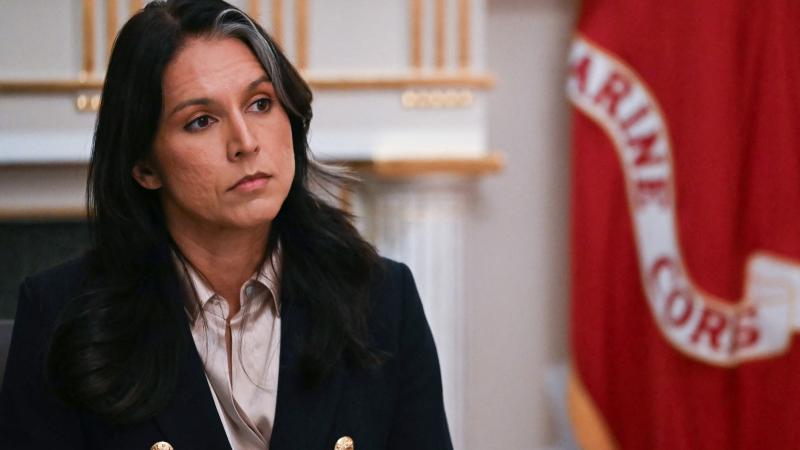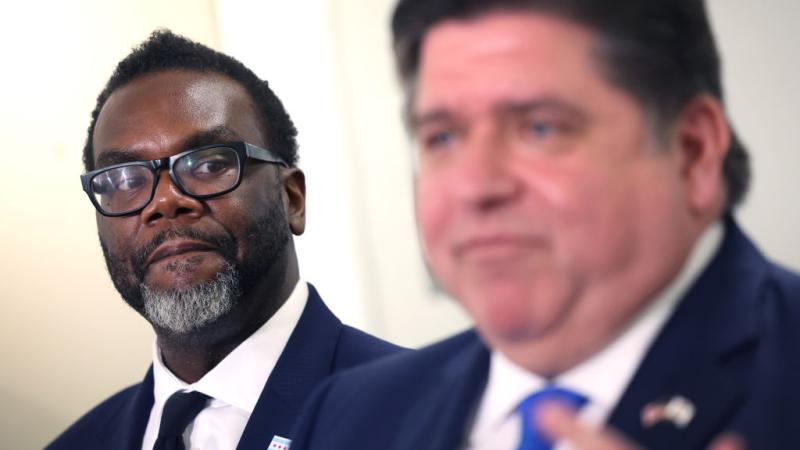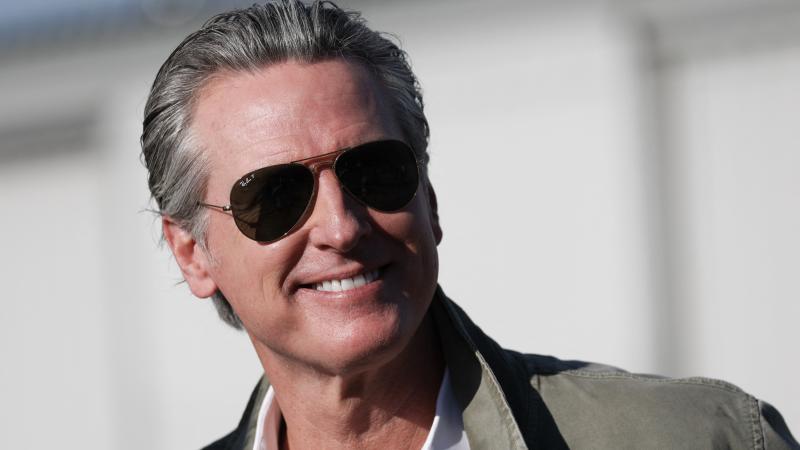Obama, Hunter Biden ties to Ukraine biolabs get fresh scrutiny
The U.S. has funded Ukrainian biodefense labs — but not for offensive weapons
In August 2005, the U.S. entered into a little known agreement with Ukraine that included America aid to upgrade security at Ukrainian facilities in which microbes were kept.
Now, almost 17 years later, questions about the deal – and the United States' broader support for biodefense laboratories in Ukraine – have surfaced amid concerns about chemical or biological weapons being used in Russia's invasion of Ukraine.
The Russian government has been claiming for weeks that the U.S. government is funding bioweapon labs in Ukraine, justifying its invasion as an effort to stop a joint American-Ukrainian plan to wage biological warfare against Russia.
Chinese officials and state media have echoed the claims, which Andrew Weber, senior fellow at the Council on Strategic Risks, calls "utter nonsense."
"It's KGB-style misinformation that's been going on for about 15 years," he said Monday.
One concern among analysts and U.S. officials is that Russia could be laying the groundwork for using chemical or biological weapons in Ukraine and giving itself plausible deniability by blaming Ukrainian labs.
Experts and U.S. officials agree with Weber that Moscow's accusations are unfounded, roundly dismissing them as propaganda.
"Russia is inventing false pretexts in an attempt to justify its own horrific actions in Ukraine," State Department spokesperson Ned Price said earlier this month.
Others have pointed out that no evidence exists to show Ukraine is working to produce weapons of mass destruction.
Director of National Intelligence Avril Haines testified earlier this month that "we do not assess that Ukraine is pursuing either biological weapons or nuclear weapons."
United Nations High Representative for Disarmament Affairs Izumi Nakamitsu similarly said the international group is "not aware" of any biological weapons program in Ukraine.
The U.S. and Ukraine are members of the Biological Weapons Convention, which prohibits such weapons. And the U.S. government has said both countries are in full compliance.
Russia, however, is not in compliance and "maintains an offensive biological weapons program," according to the State Department.
Weber told Just the News the Russian government has three top-secret military laboratories conducting work on biological weapons that have never been visited or observed by outside inspectors.
"It's very disingenuous for Russia to point its finger at the U.S. and Ukraine," he said. "Both Russia and China know there's nothing untoward going on there."
Weber was the Pentagon official in charge of the U.S.-funded program that worked with the Ukrainian government and spearheaded negotiations with Kyiv on securing biological material.
After 9/11 and subsequent anthrax attacks across the U.S., Weber explained, the president of Ukraine asked Washington to assess the security of his country's chemical and biological labs. The U.S. and Ukraine each wanted to counter the threat of bioterrorism and to prevent the proliferation of biological weapons, materials and technology, he also said.
Weber led a team that identified a number of labs run by Ukraine's Ministry of Health that would be good partners for the effort – many of them in poor shape with dangerous pathogen collections left over from the Soviet Union.
While Ukraine's labs weren't directly involved in the Soviet biological-weapons program, some of their pathogens were used for Moscow's weaponization work.
After months of negotiations, the Pentagon and the Ukrainian ministry in August 2005 struck an agreement under which the U.S. agreed to send aid to Ukraine to fund security upgrades at Ukrainian facilities in which pathogens were stored and to support Ukrainian research on fighting the spread of diseases.
The purpose was purportedly to consolidate pathogen collections into one or two safer and more secure labs in Ukraine and to strengthen Ukraine's public health capacity to respond to disease outbreaks.
Today, with the Russia invasion roughly one-month long, there are concerns that Russia could either capture Ukraine's biolabs for their own purposes or strike them and accidentally release stored pathogens.
Such concerns have prompted the World Health Organization to urge Ukrainian authorities to destroy research samples of disease pathogens in their labs.
The 2005 agreement extended to Ukraine the Cooperative Threat Reduction Program, which was established in 1991 to secure and dismantle weapons of mass destruction and their associated infrastructure in the former states of the Soviet Union. The program is housed within the Defense Department's Defense Threat Reduction Agency.
The program has spent about $12 billion on securing material used in weapons of mass destruction in post-Soviet republics, according to the DTRA. Roughly $200 million of that total has been spent on supporting 46 Ukrainian laboratories, health facilities and diagnostic sites.
There may have been some U.S. funding to support Ukrainian biodefense labs before 2005, but it would have been small and through the Science and Technology Center in Ukraine, Weber also said.
The final deal, which was meant to defend against bioweapons rather than build them, was announced by then-Sens. Richard G. Lugar, an Indiana Republican, and Barack Obama, an Illinois Democrat, during a visit to Kyiv, the Ukrainian capital.
For the last nearly two decades, the deal been the basis for U.S.-Ukraine collaboration on biological materials.
"That's been the legal framework" ever since, said Weber. "It's been a successful collaboration," despite Russian claims to the contrary.
However, one recent assertion by Russia appears to be at least partially true: that President Biden's eldest son, Hunter Biden, helped finance biolab projects in Ukraine.
Hunter Biden and his colleagues invested $500,000 in a Pentagon contractor through their firm, Rosemont Seneca Technology Partners, and raised millions more through other firms that included Goldman Sachs, according to emails from Biden's laptop. Biden abandoned his laptop at a repair shop in Delaware. The FBI now has the device.
The Pentagon contractor was Metabiota, a California-based pathogen research company.
The emails were sent during the Obama administration when Biden's father was vice president. They show the younger Biden introduced Metabiota to officials at Burisma, the Ukrainian gas company on whose board he served, for a project involving biolabs in Ukraine.
In 2014, the U.S. awarded $23.9 million to Metabiota, according to government records, and $307,091 of that total was allocated for "Ukrainian research projects."
The financial link between Hunter Biden and Metabiota's work in Ukraine was first reported by the National Pulse.















